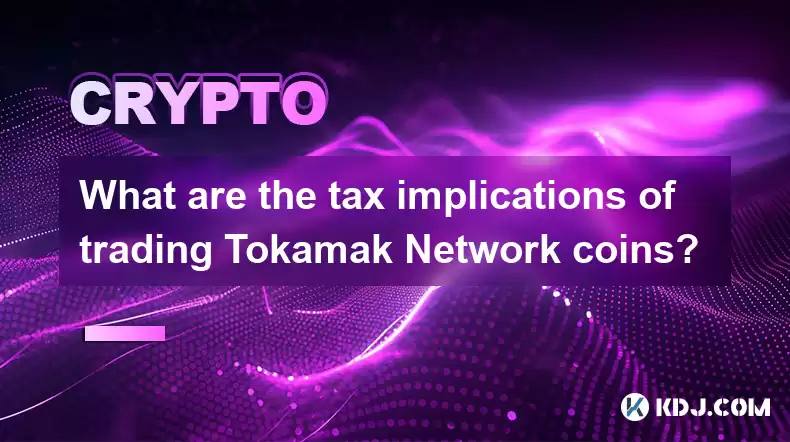-
 Bitcoin
Bitcoin $115000
0.12% -
 Ethereum
Ethereum $3701
4.50% -
 XRP
XRP $3.081
2.99% -
 Tether USDt
Tether USDt $0.0000
-0.01% -
 BNB
BNB $767.9
1.45% -
 Solana
Solana $169.5
3.13% -
 USDC
USDC $0.9999
0.01% -
 Dogecoin
Dogecoin $0.2106
4.30% -
 TRON
TRON $0.3334
1.62% -
 Cardano
Cardano $0.7564
2.54% -
 Stellar
Stellar $0.4165
0.76% -
 Hyperliquid
Hyperliquid $38.75
0.25% -
 Sui
Sui $3.593
3.00% -
 Chainlink
Chainlink $17.08
3.59% -
 Bitcoin Cash
Bitcoin Cash $573.6
4.35% -
 Hedera
Hedera $0.2508
-0.84% -
 Avalanche
Avalanche $23.07
6.46% -
 Ethena USDe
Ethena USDe $1.001
-0.02% -
 Litecoin
Litecoin $120.8
8.17% -
 UNUS SED LEO
UNUS SED LEO $8.943
-0.32% -
 Toncoin
Toncoin $3.400
-5.60% -
 Shiba Inu
Shiba Inu $0.00001255
1.54% -
 Uniswap
Uniswap $9.908
6.32% -
 Polkadot
Polkadot $3.718
2.10% -
 Monero
Monero $303.0
-0.74% -
 Dai
Dai $0.9999
-0.02% -
 Bitget Token
Bitget Token $4.392
0.91% -
 Cronos
Cronos $0.1403
6.31% -
 Pepe
Pepe $0.00001076
1.13% -
 Aave
Aave $267.2
1.80%
What are the tax implications of trading Tokamak Network coins?
Understanding cryptocurrency taxation fundamentals is critical, as transactions involving Tokamak Network (TON) coins are subject to capital gains tax rules, varying depending on holding period and transaction type.
Jan 02, 2025 at 03:05 pm

Key Points:
- Understanding Cryptocurrency Taxation Fundamentals
- Tax Considerations for Short-Term and Long-Term Holding
- Reporting Capital Gains and Losses
- Tax Implications of Staking and Lending
- Impact of Wash Sale Rule on Cryptocurrency Transactions
- International Tax Implications for Tokamak Network Coin Holders
Understanding Cryptocurrency Taxation Fundamentals
The Internal Revenue Service (IRS) classifies cryptocurrencies as property, similar to stocks or bonds. Consequently, transactions involving Tokamak Network (TON) coins are subject to capital gains tax rules. These rules dictate that any profit earned from selling TON coins held for less than one year is taxed as short-term capital gains, while profits from selling TON coins held for more than one year qualify as long-term capital gains.
Tax Considerations for Short-Term and Long-Term Holding
- Short-Term Capital Gains (Holding Period Less Than One Year): Profits realized from selling TON coins within a year of purchase are taxed at the individual's ordinary income tax rate. This rate can range from 10% to 37%, depending on the taxpayer's income level.
- Long-Term Capital Gains (Holding Period Greater Than or Equal to One Year): Profits from selling TON coins after holding them for more than a year are taxed at a lower rate, ranging from 0% to 20%. The specific rate depends on the taxpayer's income and filing status.
Reporting Capital Gains and Losses
Taxpayers must report capital gains and losses from TON coin transactions on their annual tax return, Form 1040. The IRS requires the reporting of both realized and unrealized gains and losses. Realized gains or losses occur when a TON coin is sold or exchanged, while unrealized gains or losses reflect the change in value of the coin while it is still being held.
Tax Implications of Staking and Lending
Staking and lending TON coins can generate additional income, which is also subject to taxation.
- Staking: Staking involves holding TON coins in a cryptocurrency wallet to support the network and earn rewards. The rewards earned through staking are considered ordinary income and are taxed at the individual's ordinary income tax rate.
- Lending: Lending TON coins to others through platforms like centralized exchanges or decentralized finance (DeFi) protocols also generates interest income. The interest earned from lending is also taxed as ordinary income.
Impact of Wash Sale Rule on Cryptocurrency Transactions
The wash sale rule prevents taxpayers from selling a security (including TON coins) at a loss and then repurchasing a substantially identical security within 30 days. If the wash sale rule applies, the loss from the sale cannot be used to offset capital gains or reduce taxable income.
International Tax Implications for Tokamak Network Coin Holders
Individuals residing outside the United States may face different tax implications for TON coin transactions, depending on the tax laws of their country of residence. It is crucial to understand the tax regulations specific to one's jurisdiction when engaging in cryptocurrency trading.
FAQs
- How do I calculate my capital gains on TON coin sales?
Subtract the purchase price of the coins from the selling price. The difference is your capital gain or loss.
- What if I have multiple purchases of TON coins at different prices?
Use the first-in, first-out (FIFO) method to determine the cost basis of the coins you sold. This assumes that the coins purchased first are sold first.
- How do I report staking rewards on my tax return?
Report staking rewards as ordinary income on Schedule 1 of Form 1040.
- Can I deduct TON coin mining expenses from my taxes?
Mining expenses can be deducted as miscellaneous itemized deductions subject to a 2% of adjusted gross income (AGI) floor.
- What are the tax implications of selling TON coins on a decentralized exchange (DEX)?
DEX transactions are typically treated the same as centralized exchange transactions for tax purposes. However, it is essential to keep accurate records of all your trades.
Disclaimer:info@kdj.com
The information provided is not trading advice. kdj.com does not assume any responsibility for any investments made based on the information provided in this article. Cryptocurrencies are highly volatile and it is highly recommended that you invest with caution after thorough research!
If you believe that the content used on this website infringes your copyright, please contact us immediately (info@kdj.com) and we will delete it promptly.
- Crypto Airdrops: Your August 2025 Guide to Free Tokens & Opportunities
- 2025-08-05 13:45:13
- Luxury Dining Reimagined: St. Regis Singapore & Marriott's Culinary Celebration
- 2025-08-05 13:45:13
- Fancy Farm Picnic: A Sneak Peek at the 2026 US House Race
- 2025-08-05 13:50:12
- Cardano Price, ADA Forecast & Ethereum Price: What's the Buzz?
- 2025-08-05 13:50:12
- Velo Universe, DEX, and DeFi Security: Navigating the Future of Decentralized Trading
- 2025-08-05 09:25:13
- Bitget Wallet Revolutionizes Solana with Gas-Free Transactions: A New Era for DeFi
- 2025-08-05 09:25:13
Related knowledge

What is Chainlink (LINK)?
Jul 22,2025 at 02:14am
Understanding Chainlink (LINK): The Decentralized Oracle NetworkChainlink is a decentralized oracle network designed to bridge the gap between blockch...

What is Avalanche (AVAX)?
Jul 22,2025 at 08:35am
What is Avalanche (AVAX)?Avalanche (AVAX) is a decentralized, open-source blockchain platform designed to support high-performance decentralized appli...

What is Polkadot (DOT)?
Jul 19,2025 at 06:35pm
Understanding the Basics of Polkadot (DOT)Polkadot (DOT) is a multi-chain network protocol designed to enable different blockchains to transfer messag...

What is Litecoin (LTC)?
Jul 23,2025 at 11:35am
Overview of Litecoin (LTC)Litecoin (LTC) is a peer-to-peer cryptocurrency that was created in 2011 by Charlie Lee, a former Google engineer. It is oft...

What is Monero (XMR)?
Jul 21,2025 at 10:07am
What is Monero (XMR)?Monero (XMR) is a decentralized cryptocurrency designed to provide enhanced privacy and anonymity for its users. Unlike Bitcoin a...

How to add indicators to Ethereum chart on TradingView?
Jul 19,2025 at 07:15am
What Is an Ethereum Chart on TradingView?The Ethereum chart on TradingView is a visual representation of the price movement of Ethereum (ETH) over a s...

What is Chainlink (LINK)?
Jul 22,2025 at 02:14am
Understanding Chainlink (LINK): The Decentralized Oracle NetworkChainlink is a decentralized oracle network designed to bridge the gap between blockch...

What is Avalanche (AVAX)?
Jul 22,2025 at 08:35am
What is Avalanche (AVAX)?Avalanche (AVAX) is a decentralized, open-source blockchain platform designed to support high-performance decentralized appli...

What is Polkadot (DOT)?
Jul 19,2025 at 06:35pm
Understanding the Basics of Polkadot (DOT)Polkadot (DOT) is a multi-chain network protocol designed to enable different blockchains to transfer messag...

What is Litecoin (LTC)?
Jul 23,2025 at 11:35am
Overview of Litecoin (LTC)Litecoin (LTC) is a peer-to-peer cryptocurrency that was created in 2011 by Charlie Lee, a former Google engineer. It is oft...

What is Monero (XMR)?
Jul 21,2025 at 10:07am
What is Monero (XMR)?Monero (XMR) is a decentralized cryptocurrency designed to provide enhanced privacy and anonymity for its users. Unlike Bitcoin a...

How to add indicators to Ethereum chart on TradingView?
Jul 19,2025 at 07:15am
What Is an Ethereum Chart on TradingView?The Ethereum chart on TradingView is a visual representation of the price movement of Ethereum (ETH) over a s...
See all articles

























































































